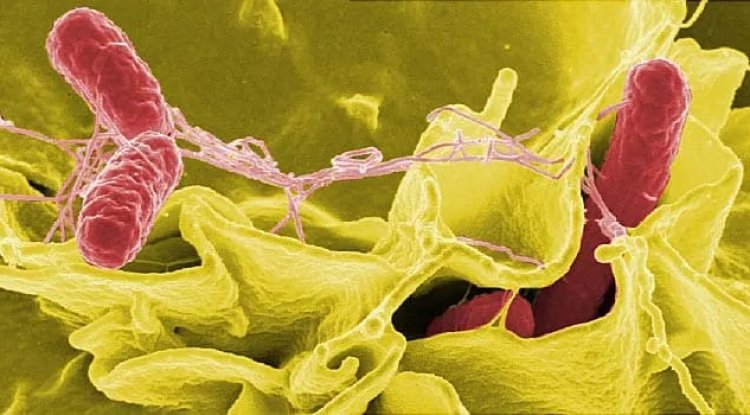Dr. Google and the Curious Minds: The 10 Health Questions We Asked Most
Let’s be honest we’ve all done it. It’s late at night, something feels a little off, and before you know it, you’re deep in a Google search that somehow convinced you you’ve got every disease known to humankind.

Welcome to the modern confession booth: Dr. Google.
Back in 2017, Google released the top 10 health-related searches that had people most curious (and sometimes panicked). The list says a lot about what we worry about and how much we rely on quick answers instead of calm ones.
Here’s a closer look at those burning questions and what they really mean.
1. What Causes Hiccups?
It’s oddly comforting that hiccups made it to the top of the list, proof that no one is immune to life’s little mysteries.
At their core, hiccups are just your diaphragm acting up a tiny muscle spasm that interrupts your breathing rhythm. They might pop up after eating too fast, drinking soda, laughing too hard, or even from stress or excitement.
Most of the time, they’re harmless and vanish as quickly as they came. But in rare cases, stubborn hiccups can be a signal of something deeper, like thyroid or nerve issues. For the rest of us, they’re simply nature’s strange way of saying, slow down, take a breath.
2. How Can I Stop Snoring?
Let’s face it this search probably came from the sleep-deprived partner, not the snorer.
Snoring happens when air struggles to move freely through your throat while you sleep, creating that oh-so-romantic nighttime soundtrack.
If you want to quiet things down, start small: sleep on your side, lose a bit of weight, cut back on alcohol, and keep allergies or nasal congestion in check. Sometimes even a humidifier or a change in pillow height can work wonders.
Still no peace? A custom mouthpiece or a chat with your doctor might help turn your nights silent again.
3. What Causes Kidney Stones?
If you’ve ever had a kidney stone, you know it’s small, but the pain is monumental.
When minerals like calcium or uric acid aggregate in your urine, kidney stones can develop. Certain drugs, salty diets, and dehydration all increase your risk. So can genetics thanks, family.
Prevention is straightforward: drink more water, ease up on sodium, and go easy on oxalate-heavy foods like spinach and nuts. Your kidneys will thank you.
4. Why Am I So Tired?
“Tired” is one of those words that can mean a hundred things: exhausted, unmotivated, sleepy, burned out, or just plain done.
The causes are endless: poor sleep, stress, anemia, thyroid issues, depression, chronic illness, or sometimes, no clear reason at all.
If tiredness becomes your default setting, it’s time to stop pushing through and start checking in with a doctor. Fatigue is your body’s way of whispering that something’s off, don't wait until it starts shouting.
5. How Long Does the Flu Last?

The flu usually lingers for around five days though it feels more like five years when you’re in it.
You’ll probably battle fever, chills, aches, and sheer exhaustion. Most people bounce back within a week, but that bone-deep tiredness can hang around for days afterward.
The best cure? Rest, fluids, and patience. And if you really want to avoid it next time get the flu shot.
6. What’s Considered Normal Blood Pressure?
For decades, 120/80 mmHg was the gold standard. But in late 2017, experts revised the guidelines now, 130/80 or higher counts as high blood pressure.
That said, “normal” is flexible. What’s perfect for one person might be too low or too high for another.
The important thing is to know your numbers, track them over time, and talk to your doctor if they start creeping upward.
7.How Can I Lower My Cholesterol?
Perseverance is more important for lowering cholesterol than making abrupt, significant changes.
Lean proteins and high-fiber foods like fruit, beans, and oats can be used in favor of fried foods and red meat. Reduce your sitting, increase your movement, and aim for a healthy weight.
Additionally, if lifestyle modifications do not work, your doctor may suggest medication to keep you balanced.
8. What Leads to Hypertension?
Blood pressure may be cunning. It frequently progresses slowly and silently, which is why it is known as "the silent killer."
Although there is rarely a single reason, aging, stress, poor food, inactivity, and several drugs are common factors. Another significant factor may be family history.
Small actions like cutting back on salt, controlling your stress, and maintaining an active lifestyle can make a big difference in maintaining stable levels and a healthy heart.
9. Describe ADHD.
Being easily distracted is only one aspect of Attention Deficit Hyperactivity Disorder, or ADHD. This neurological disorder, which hampers organization, self-control, and focus, is not limited to children.
Many adults with ADHD are unaware that they have it, attributing their impulsivity or forgetfulness to personality traits rather than genetics.
In order to help focus and enhance everyday functioning, treatment typically consists of a combination of medication, counseling, and scheduled routines.
10. Describe Lupus.
Because lupus is an autoimmune disease, your body's defense mechanism, the immune system, unintentionally turns against you.
It can affect the skin, joints, kidneys, heart, and even the brain. Symptoms vary, but fatigue, rashes, and joint pain are common.
While there’s no cure, medications can help manage inflammation and protect your organs, allowing most people with lupus to live healthy, active lives.
The Final Word: Google Is Helpful But It’s Not Your Doctor
Let’s be honest Googling symptoms is part of being human in the digital age. But remember, the internet doesn’t know you.
When your search history starts looking like a medical mystery novel, take a breath and call your doctor. Reliable sources like the CDC, Mayo Clinic, or major hospitals are great for learning. But true answers come from someone who knows your health, not your browser.
Curiosity is good. But peace of mind? That’s something only real advice can give.
What's Your Reaction?




















